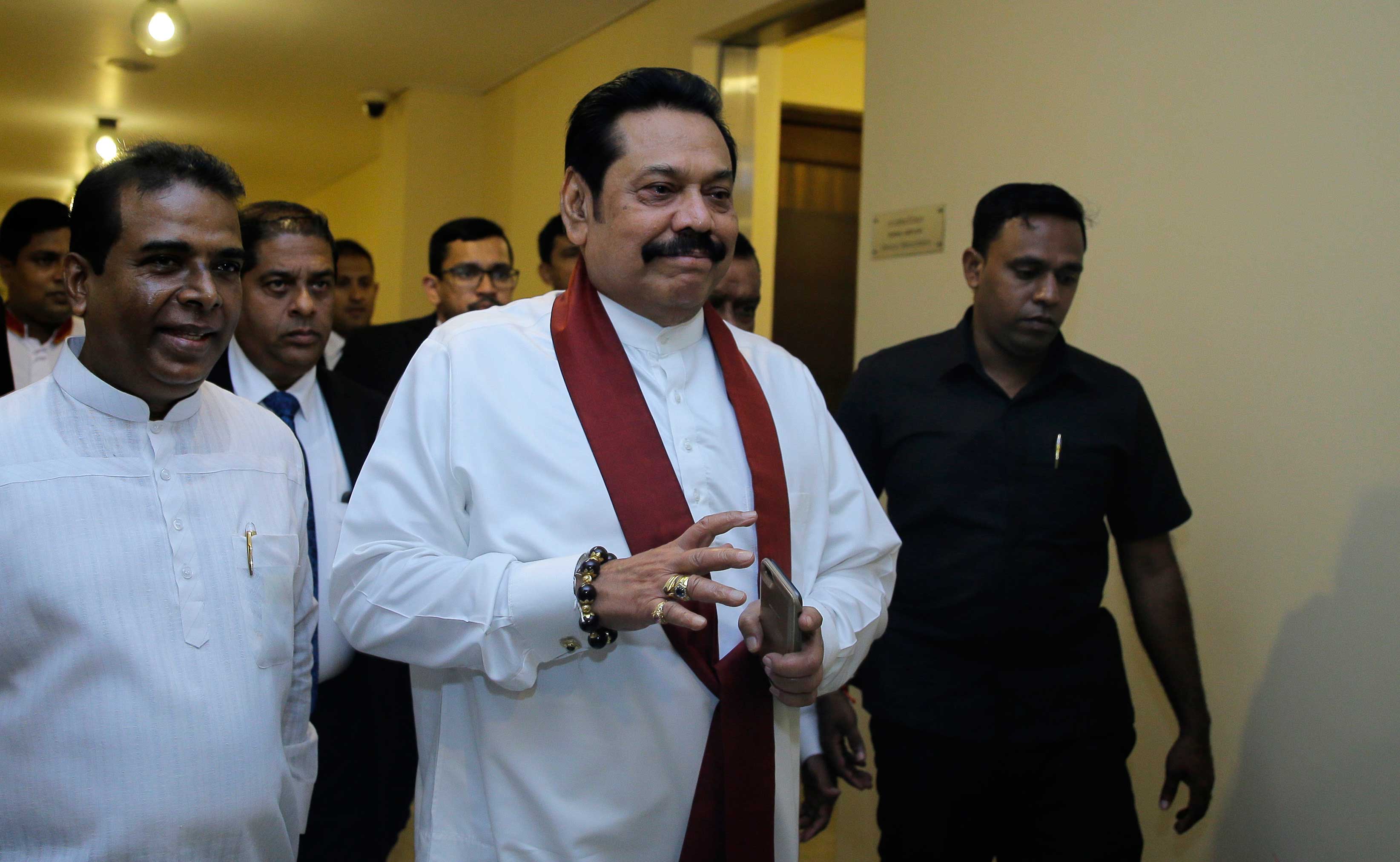Sri Lanka’s parliament cut the budget of the Prime Minister’s office on Thursday, a move designed to hinder disputed Premier Mahinda Rajapaksa whose supporters boycotted the vote in the latest twist in a weeks-long political standoff.
Lawmakers opposed to Rajapaksa, who has lost two no-confidence votes in parliament, regard his administration as illegitimate and say he should not be able to use government money for his day-to-day expenses.
“This means the Prime Minister will be dysfunctional. We will bring a similar motion tomorrow to cut down the expenditure of other ministers,” said Ravi Karunanayake, the former finance minister who proposed Thursday’s motion which passed 123 to none in the 225-member parliament.
The vote comes more than a month after President Maithripala Sirisena triggered the crisis by ousting former Prime Minister Ranil Wickremesinghe and replacing him with Rajapaksa, who was then in turn sacked by parliament.
In another development on Thursday, the main ethnic minority Tamil party TNA said it would support a coalition led by Wickremesinghe’s party if his government were restored. They previously stood in Opposition.
That would give Wickremesinghe’s coalition a clear majority in parliament which Rajapaksa, at present, cannot muster.
Rajapaksa was President from 2005-2015, a decade of rule that critics said became increasingly authoritarian and marred by nepotism and corruption.
He presided over a bloody government victory over separatist rebels from the Tamil minority in 2009, ending a 26-year civil war.
Rajapaksa and his loyalists denounced Thursday’s vote as “illegal” and questioned the impartiality of parliament’s Speaker.
“Speaker is acting completely illegally and arbitrarily. We are not participating in such illegal meetings,” Rajapaksa told reporters in parliament before Thursday’s proceedings started.
While the rhetoric remained belligerent from both sides, the atmosphere has cooled since Rajapaksa loyalists threw chairs and chilli paste at the Speaker to try to disrupt a no-confidence motion almost two weeks ago.
The focus is now on the courts, which are next week expected to rule on whether Sirisena’s sacking of Wickremesinghe on October 26 and then his dissolution of parliament on November 9 were constitutional.
The latest political ruckus have not led to widespread unrest and violence.
Rajapaksa is seen as a hero by many among Sri Lanka’s Buddhist majority for ending the war but has been accused by diplomats of human rights abuses, particularly at the end of the conflict, which he denies. Speaker Karu Jayasuriya on Thursday met Sirisena and apprised him about the negative impact of ongoing policy crisis on the country’s currency and foreign investments.










